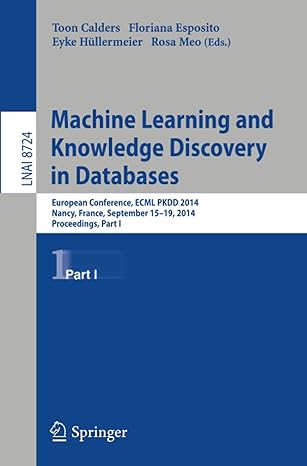Answered step by step
Verified Expert Solution
Question
1 Approved Answer
Please write ONLY in C language. priority_queue.h #ifndef PRIORITY_QUEUE_H #define PRIORITY_QUEUE_H enum status { FAILURE, SUCCESS }; typedef enum status Status; enum boolean { FALSE,
Please write ONLY in C language.

priority_queue.h
#ifndef PRIORITY_QUEUE_H #define PRIORITY_QUEUE_H enum status { FAILURE, SUCCESS }; typedef enum status Status; enum boolean { FALSE, TRUE }; typedef enum boolean Boolean; typedef void* PRIORITY_QUEUE; //Precondition: Creates an empty priority queue that can store integer data items // with different integer priority. Higher // integer values indicate higher priority in the queue. For example, consider the // priority and the data value to be key-value pairs where the priority is the key // and the data is the value. The queue could hold 21,10 and 35, 5 so that the // first item to be removed from the queue would be the data value 5 because // it has higher priority (35) than the data value 10 which only has (21). //Postcondition: Returns the handle to an empty priority queue. PRIORITY_QUEUE priority_queue_init_default(void); //Precondition: hQueue is a handle to a valid priority queue opaque object. // Higher priority_level values indicate higher priority in the queue. // data_item is simply a value we are storing in the queue. //Postcondition: returns SUCCESS if the item was successfully added to the queue // and FAILURE otherwise. Status priority_queue_insert(PRIORITY_QUEUE hQueue, int priority_level, int data_item); //Precondition: hQueue is a handle to a valid priority queue opaque object. //Postcondition: returns SUCCESS if the highest priority item was removed from the queue // and FAILURE if the queue was empty. Status priority_queue_service(PRIORITY_QUEUE hQueue); //Precondition: hQueue is a handle to a valid priority queue opaque object. //Postcondition: returns a copy of the data value for the // highest priority item in the queue. Sets the variable at the address // referred to in pStatus to SUCCESS if there is // at least one item in the queue and FAILURE otherwise. If pStatus is // passed in as NULL then the status value is ignored for this run of the // function. int priority_queue_front(PRIORITY_QUEUE hQueue, Status* pStatus); //Precondition: hQueue is a handle to a valid priority queue opaque object. //Postcondition: returns TRUE if the priority_queue is empty and FALSE otherwise. Boolean priority_queue_is_empty(PRIORITY_QUEUE hQueue); //Precondition: phQueue is a pointer to the handle of a valid priority queue opaque object. //Postcondition: The opaque object will be free'd from memory and the handle pointed to // by phQueue will be set to NULL. void priority_queue_destroy(PRIORITY_QUEUE* phQueue); #endif Write the implementation file, priority_ queue.c, for the interface in the given header file, priority_queue.h. Turn in your priority_queue.c file and a suitable main program, main.c, that tests the opaque object. priority_queue.h is attached as a file to this assignment but is also listed here for your convenience. Your implementation file should implement the priority queue using a heap data structure. Submissions that implement the priority queue without using a heap will not receive Write the implementation file, priority_ queue.c, for the interface in the given header file, priority_queue.h. Turn in your priority_queue.c file and a suitable main program, main.c, that tests the opaque object. priority_queue.h is attached as a file to this assignment but is also listed here for your convenience. Your implementation file should implement the priority queue using a heap data structure. Submissions that implement the priority queue without using a heap will not receive Step by Step Solution
There are 3 Steps involved in it
Step: 1

Get Instant Access to Expert-Tailored Solutions
See step-by-step solutions with expert insights and AI powered tools for academic success
Step: 2

Step: 3

Ace Your Homework with AI
Get the answers you need in no time with our AI-driven, step-by-step assistance
Get Started


